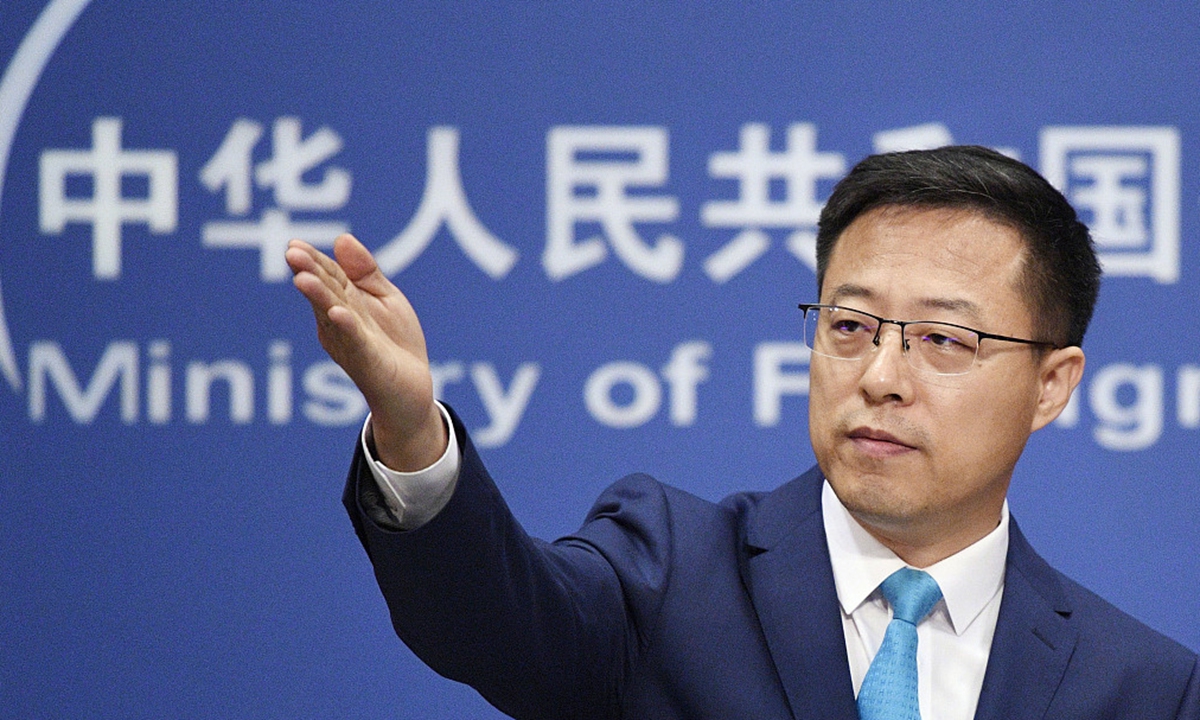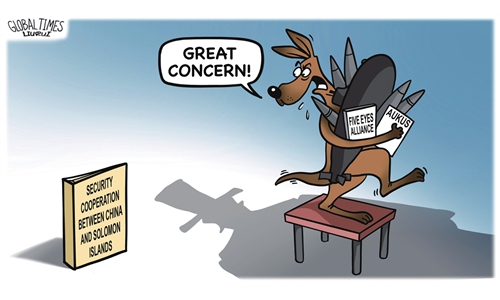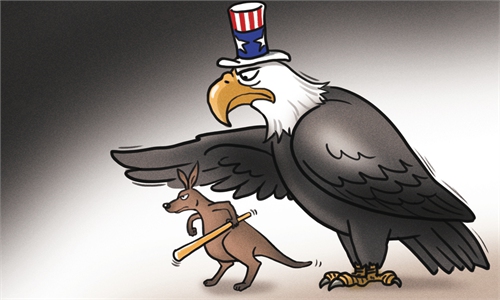Australia plays victim of ‘economic coercion’ to attack China, obstructs cooperation: Chinese FM

Chinese Foreign Ministry spokesperson Zhao Lijian. Photo: VCG
Australia plays victim to attack China, and violates market principles by obstructing normal bilateral exchanges, a Chinese Foreign Ministry spokesperson said in response to Australian official's remarks that Australia is trying to find new trading partners to reduce reliance on China. The spokesperson urged Australia to handle bilateral relations with mutual respect.
The comment was made after Australian Treasurer Josh Frydenberg said that Australia will invest more to find new buyers for its exports in an effort to ease trade dependence on China in the face of "economic coercion" from China.
China has always adhered to the ideas of being open, inclusive, and mutually beneficial with other countries. Australia has benefited enormously from cooperation with China and is a beneficiary of China's development, Zhao Lijian, spokesperson of Ministry of Foreign Affairs, said at the routine press conference on Friday.
The so-called "economic coercion" label is definitely not on China, Zhao said.
On the contrary, the Australian side has taken measures that go against market principles, and has imposed unreasonable restrictions on the normal exchanges between the two countries, interfering with China-Australia pragmatic cooperation, Zhao added.
Australia pretends to be a victim and attacks China, and creates cliques to put pressure on China, which violates international law and basic norms of international relations, Zhao said. He added that what Australia does harms China's core interests.
Zhao said that the responsibility for the current difficult situation in China-Australia relations lies entirely with the Australian side. He urged Australia to stop claiming there is so-called "economic coercion" from China, and do more things that are conducive to enhancing mutual trust and cooperation between the two countries.
Global Times


